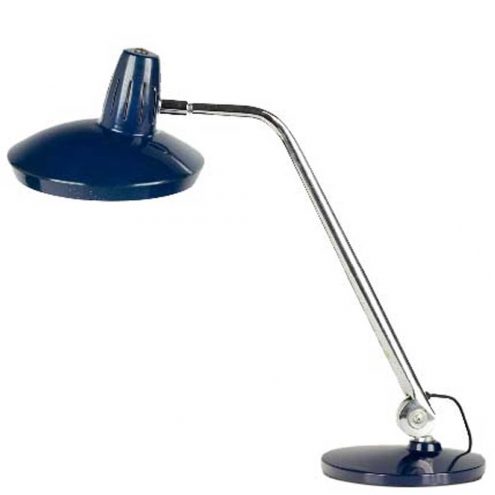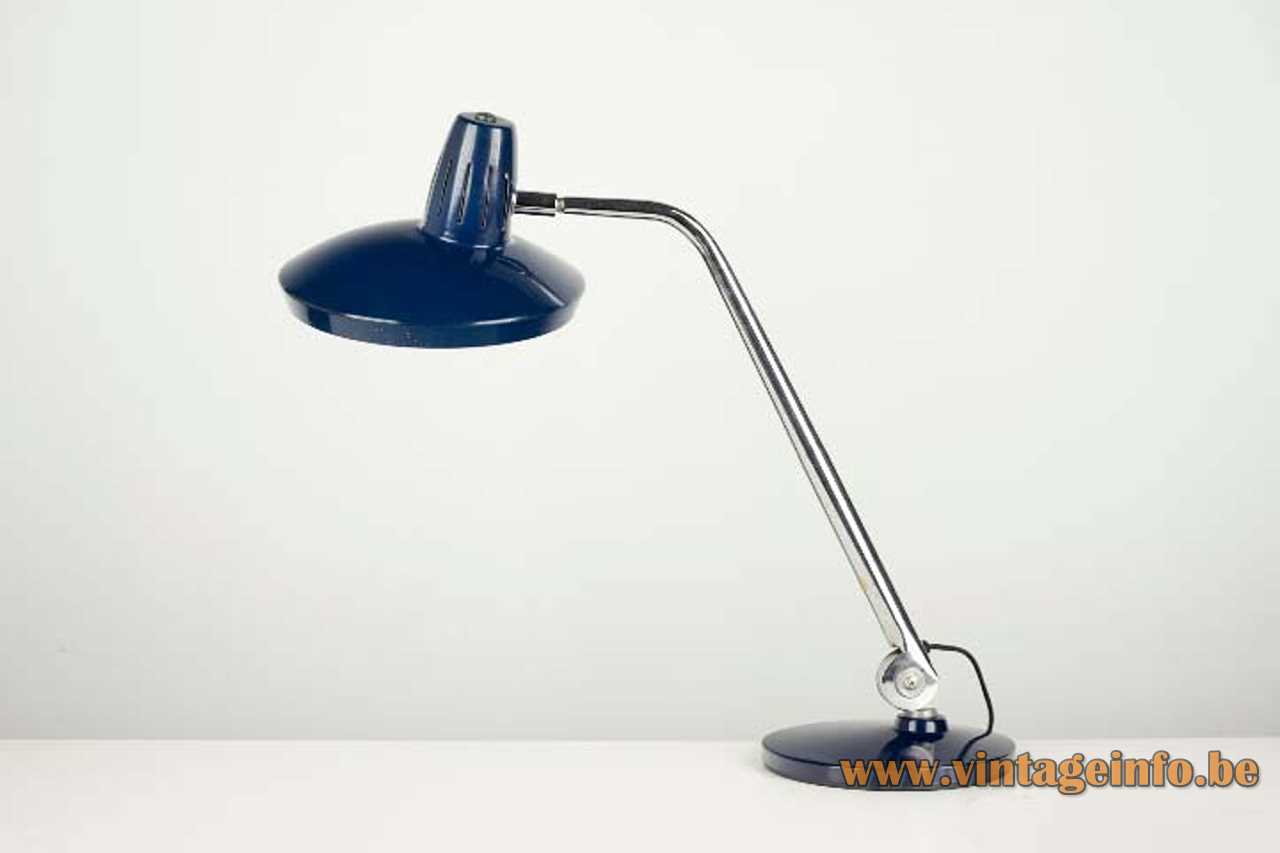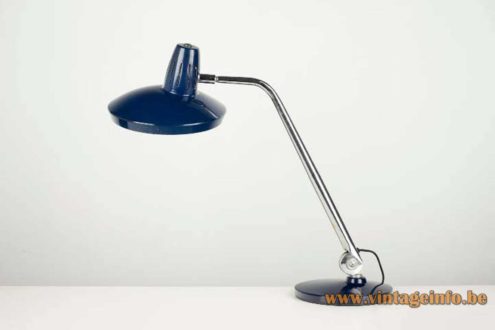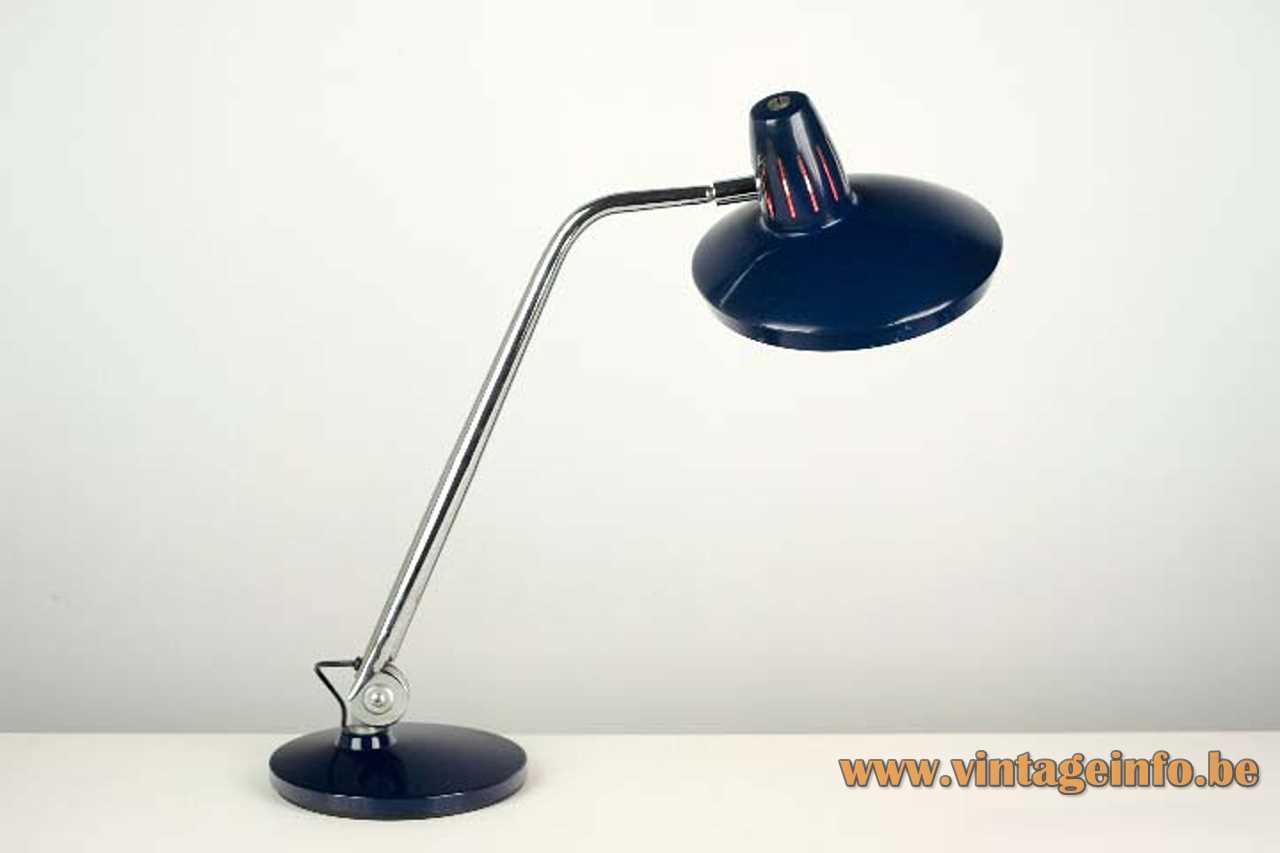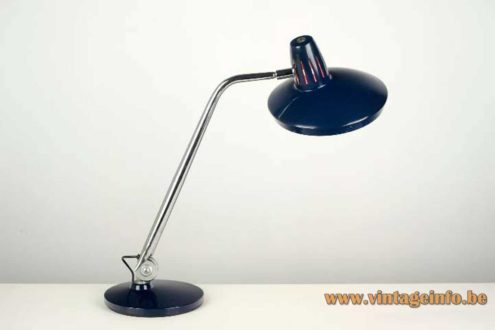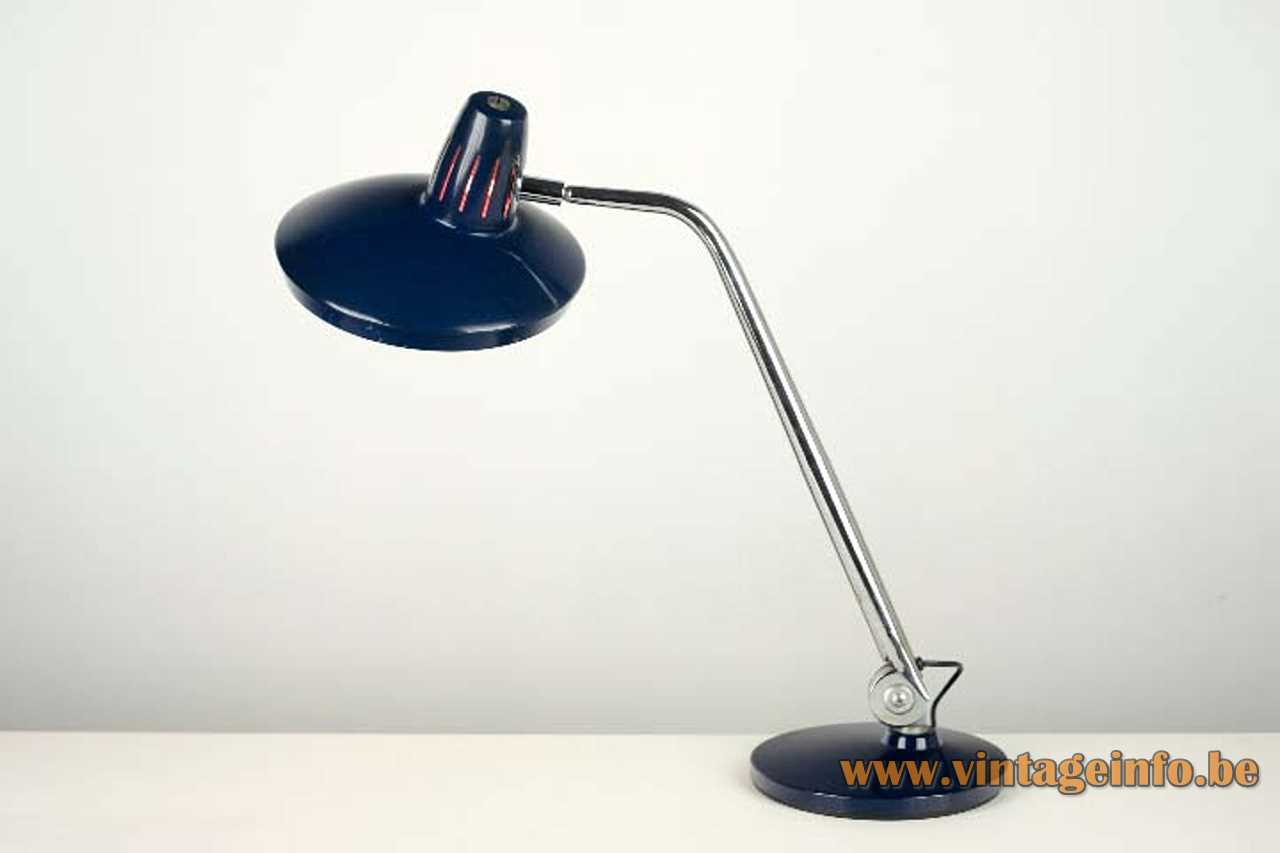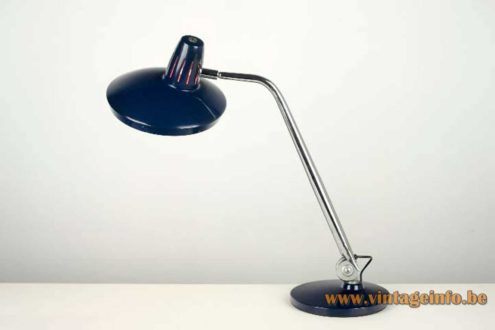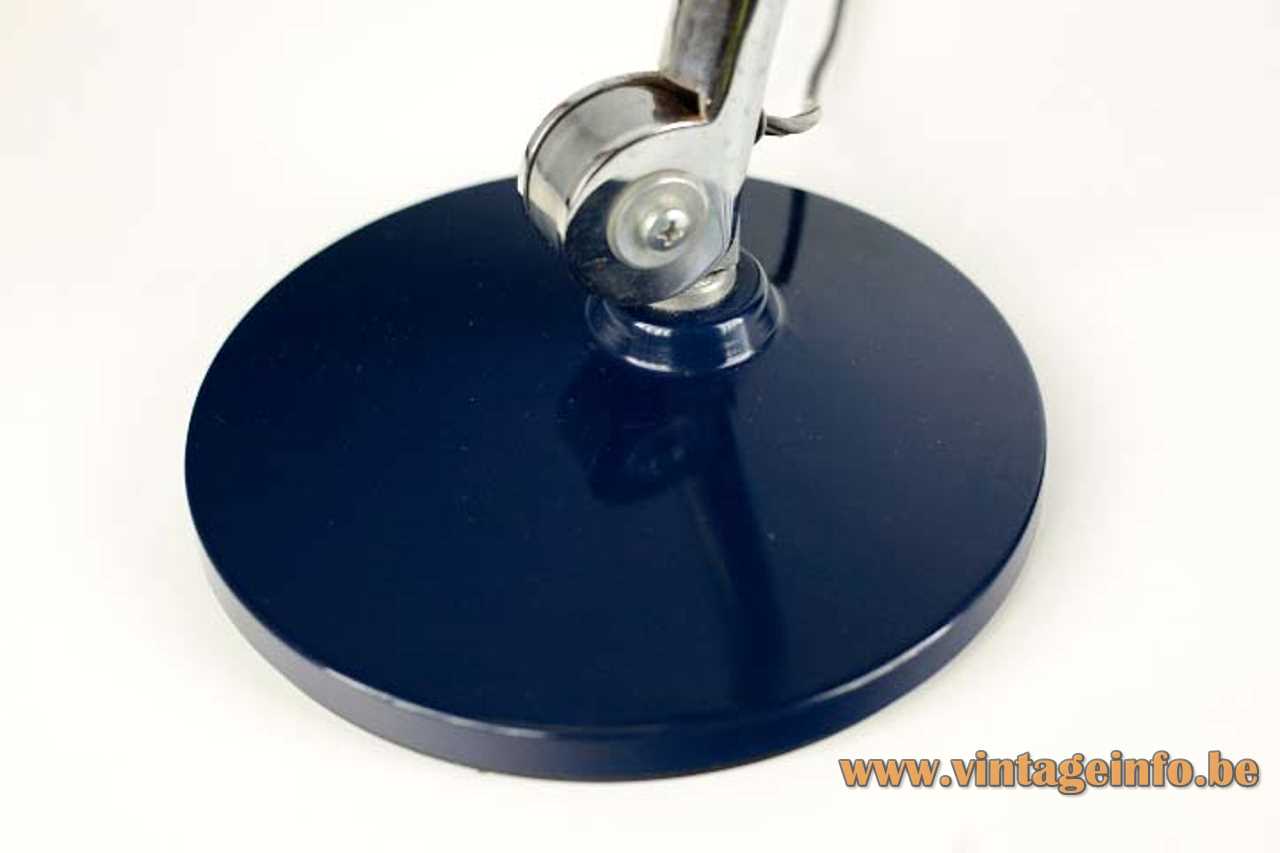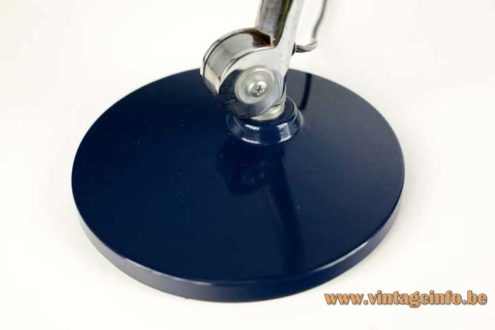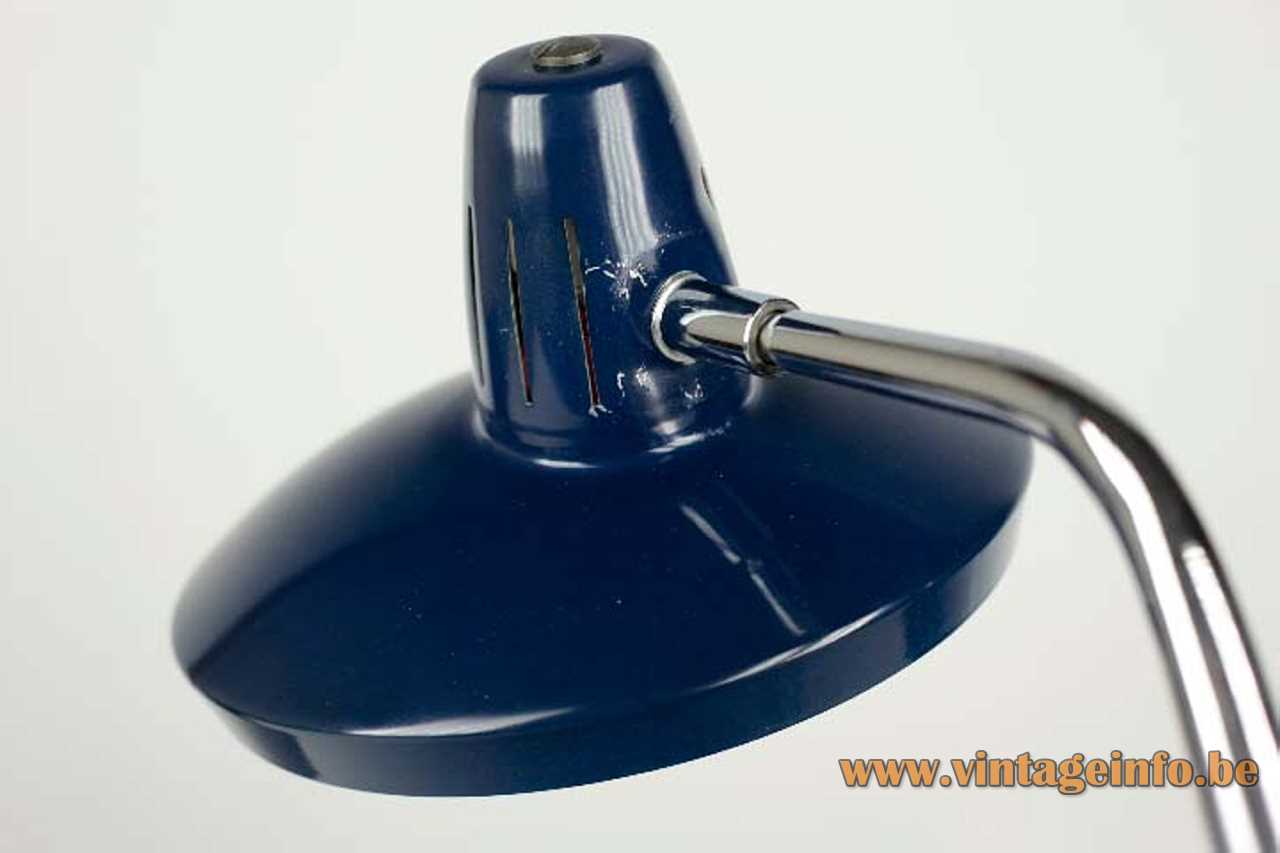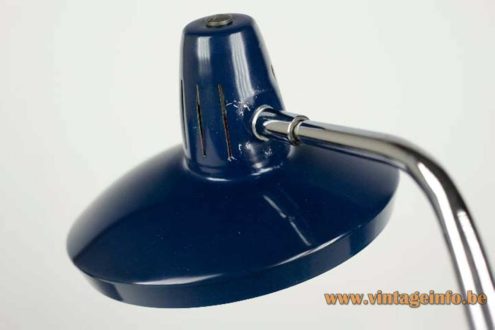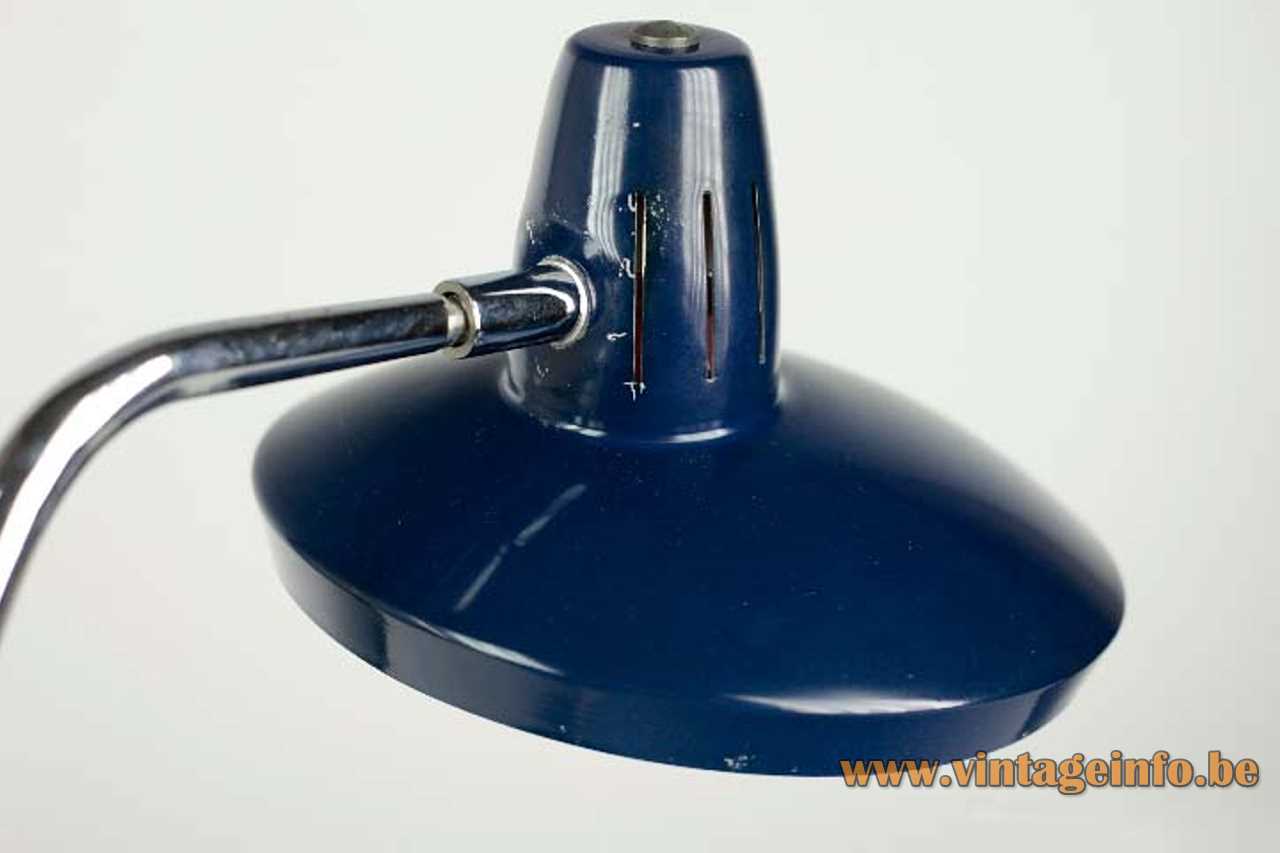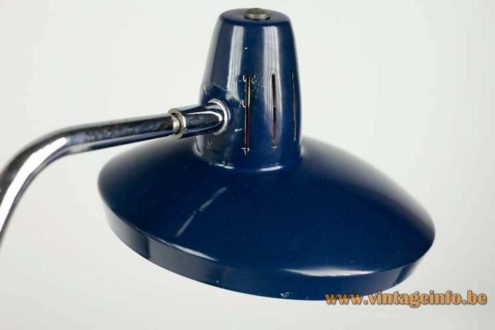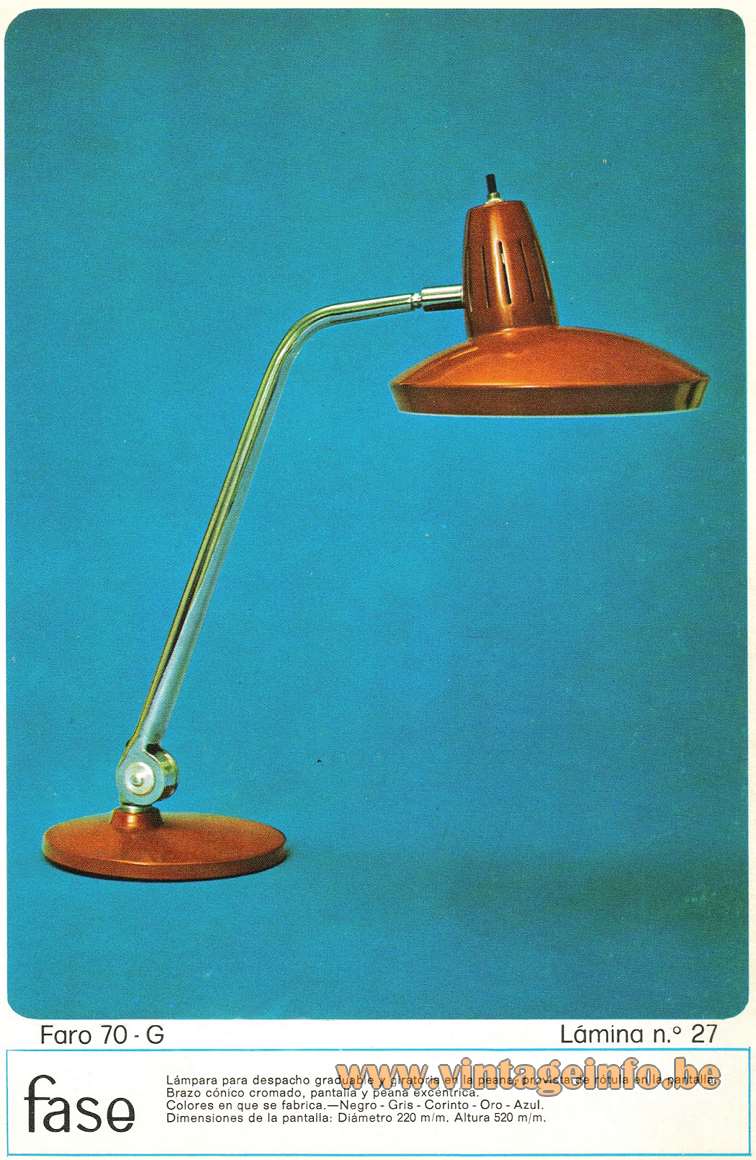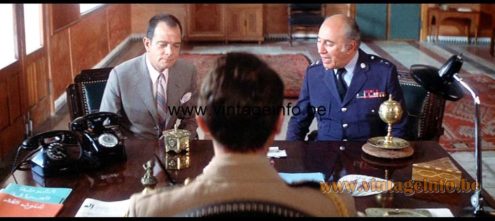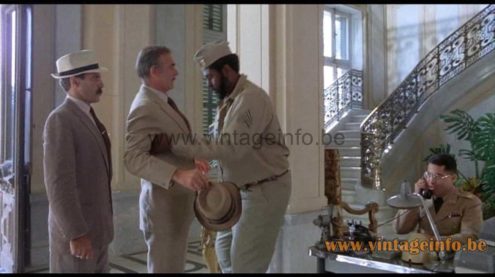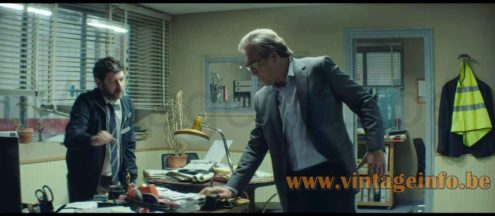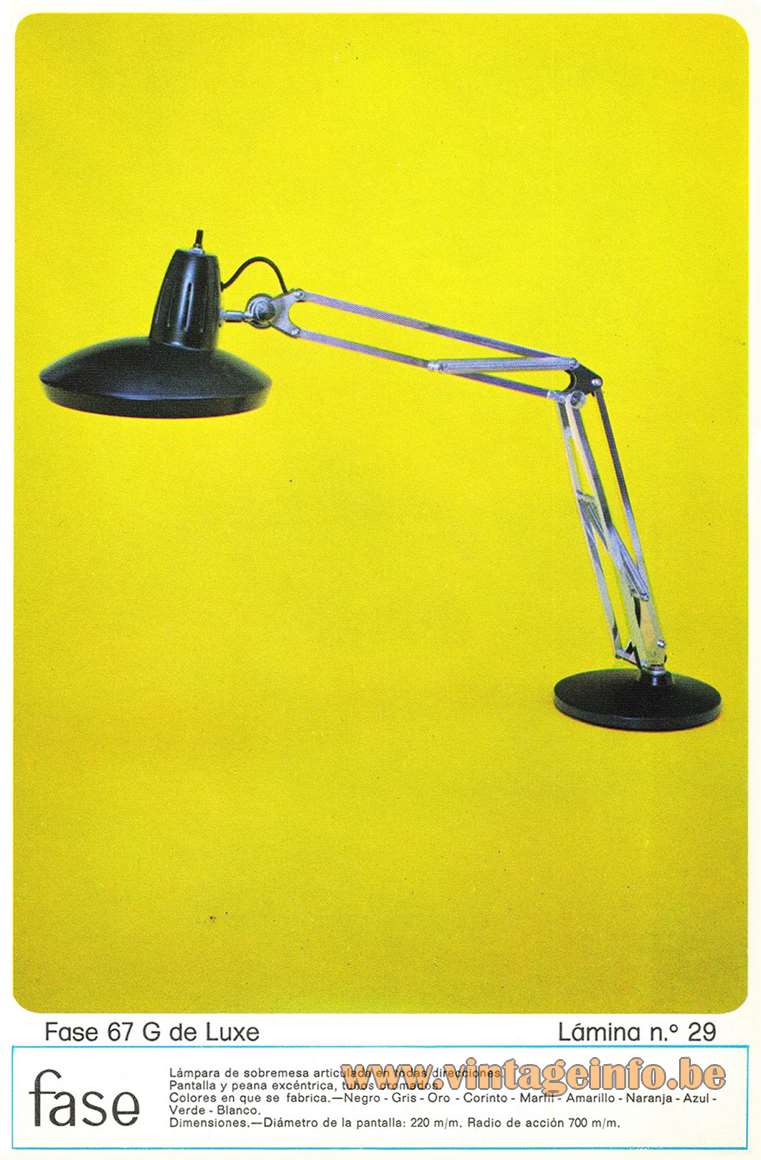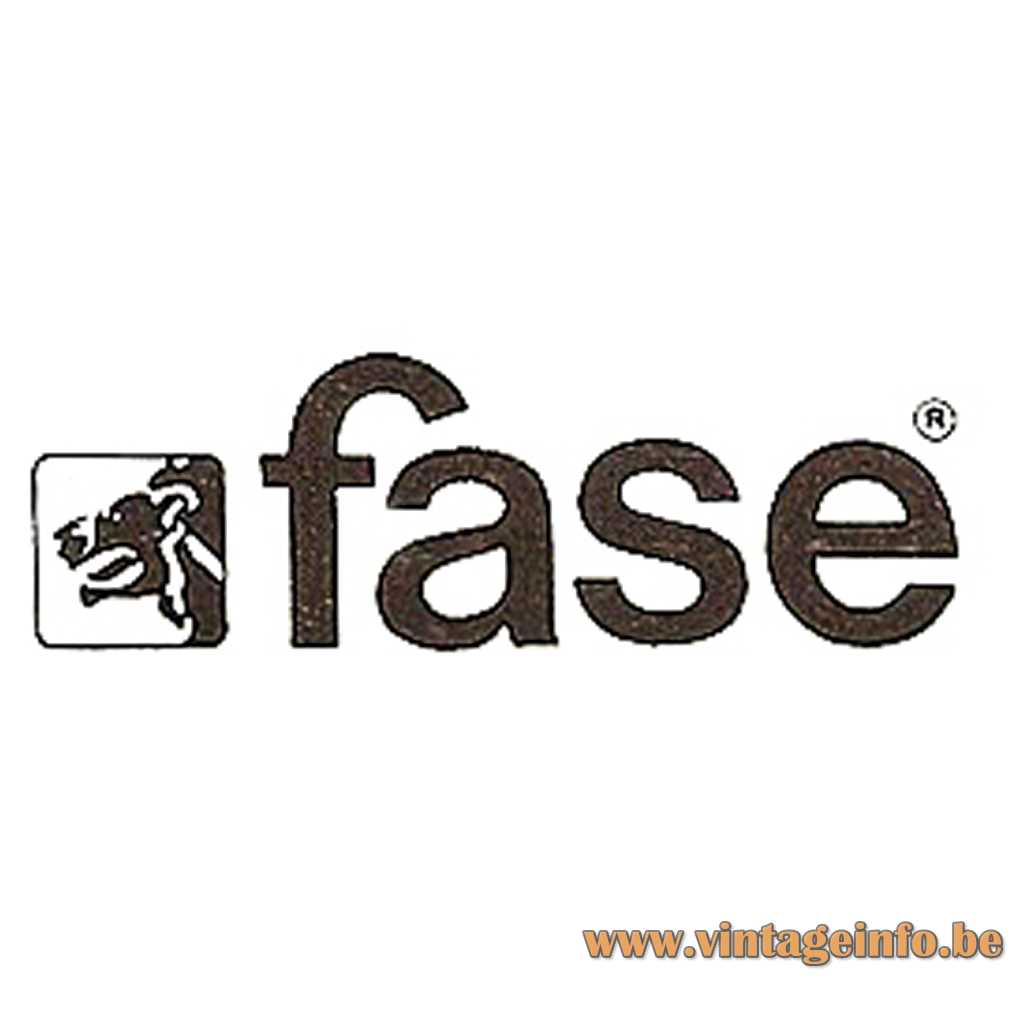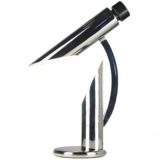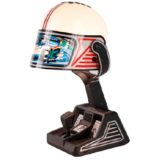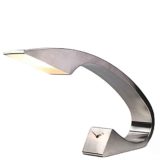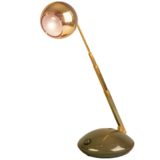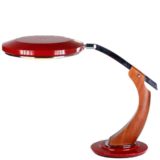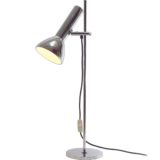Fase Faro 70-G desk lamp in the 1974 catalogue
Lamps In The Movies!
A black Fase Faro desk lamp was used as a set decoration in the 1975 comedy film The Return Of The Pink Panther with famous actor Peter Sellers as inspector Clouseau.
Beware of the Fase Faro lamps, they are time travellers! A grey Fase Faro table lamp was used as a set decoration in the film Cuba. The film is portraying the build-up to the 1958 Cuban Revolution. Starring Sean Connery, Brooke Adams and Jack Weston. Cuba was shot in Spain in December 1978…
A yellow Fase Faro desk lamp was used as a set decoration in the 2021Spanish comedy film El Buen Patrón (The Good Boss). Starring Javier Bardem, Manolo Solo and Almudena Amor.
Many thanks to LluísfromEclectique Vintagefor the photos.
Blue Fase Faro Desk Lamp
Materials: Round blue painted flat metal base (iron). Adjustable thick folded chromed metal rod, also made in iron. Blue painted round aluminium lampshade with elongated slots, painted white on the inside. Bakelite E27 socket.
Height: 52 cm / 20.47”
Lampshade: ∅ 22 cm / 8.66”
Base: ∅ 15 cm / 5.90”
Electricity: 1 bulb E27, 1 x 60 watt maximum, 110/220 volt.
Any type of light bulb can be used, not a specific one preferred.
Period: 1970s – Mid-Century Modern.
Designer: To be appraised.
Manufacturer: Fase, Torrejón de Ardoz, Madrid, Spain.
Other versions: The Blue Fase Faro desk lamp exists in several versions. Made with or without a dimmer. Made with a switch on cord or a switch on top of the lampshade. The exists with a different base and were produced in several colours. Also made as an architect desk lamp, model 67-G (de Luxe) and a clamp lamp, model 67 F-1 (de Luxe). An architect tripod floor lamp on wheels, model 67 Pie was also made. Probably also made in some other models.
Faro: Lighthouse, beacon, headlight, light, lamp, lantern.
Fase
The Fase company was founded by self-made man Pedro García Martin and designer Luis Pérez de la Oliva.
The Boomerang 64 lamp was one of their first designs in 1964, you find it over here on Vintageinfo. Initially they sold their self-produced lamps to the markets in and around the capital Madrid before successfully opening a factory in Torrejón de Ardoz on the outskirts of the city.
They produced mainly lamps, but also ashtrays and other products such as office bins and coat racks.
Fase supplied many lamps to the offices of General Franco‘s dictatorial government and the Guardia Civil, some sort of military police. From 1975 on, after the death of Franco and the end of the regime, Fase started with Italian Modern and Bauhaus-inspired designs. The Spaniards were unfamiliar with this design because of the Franco regime that ruled the country with an iron fist and allowed few foreign influences.
During the 70s Fase exported lamps to Belgium, The Netherlands, Luxembourg, Great Britain, Norway, France, Italy, Germany, Portugal, United Arab Emirates, Japan, Hong Kong, Morocco, the United States and Canada. In total in more than 32 countries.
The 1980s
In the 1980s Fase jumped on the bandwagon of the halogen lighting. The break with tradition proved unsuccessful and ultimately contributed to the end of the business. A large fine of the Treasury in the early nineties for tax irregularities was the end for Fase. The company was officially dissolved in 1996.
Drowned, the company sold its manufacturing license to a German brand, Ma-Of, which slightly modified the original design by adding more chrome. Before these final death rattles, the partners had already separated. GEI (Gabinete Estudios Industriales – Cabinet Industrial Studies) was another company that sold similar lamps. Also Massive from Belgium produced a few lamps in this style.
When the company stopped producing them abruptly, there was a lot of ‘stock’ available in the warehouses. That’s why you find relatively many lamps with a label attached. Many lamps are sold new and never used in the box (NOS – New Old Stock).
Designers who have worked for the company include: Gabriel Teixidó. He designed the Iberia and Meca series and Tomás Díaz Magro, responsible for the Apolo, Minifase and Impala lamps. The most productive was Luis Pérez de la Oliva, who designed the majority of the Fase lamps.
Fase also sold lamps made by others such as the Yamada Shomei ‘Manon’ table lamp from Japan. You can find it over here on Vintageinfo. The Prisma table lamp was produced in Italy by F.A.A.I.Arredo. Also the Sinus stacking ashtray made by Helit from Germany. A design by Walter Zeischegg from 1967. You can find it here in the MoMA, New York. Fase also sold lamps from other companies.
LUPELA
LUPELA was founded by LUis PErez L’Anzas (acronym of “lupela”). Luis had two sons: Fernando Perez de la Oliva, who later registered the LUPELA trademark, and Luis Pérez de la Oliva, who founded Fase, together with Pedro Martin. Fernando bought the production rights for 5 lamps by designer Jose Luis Gugel Sacha: the Reina, Cobra, Cisne and models 225 and 226. He agreed with his brother Luis that Fase would not produce articulated lamps. They did not keep to the agreement and Fase designed and produced many lamps inspired by LUPELA models.
Fase Faro 67 G de Luxe desk lamp in the 1974 catalogue
Vintageinfo Links
67 F-1 clamp lamp – The clamp lamp of the Faro
